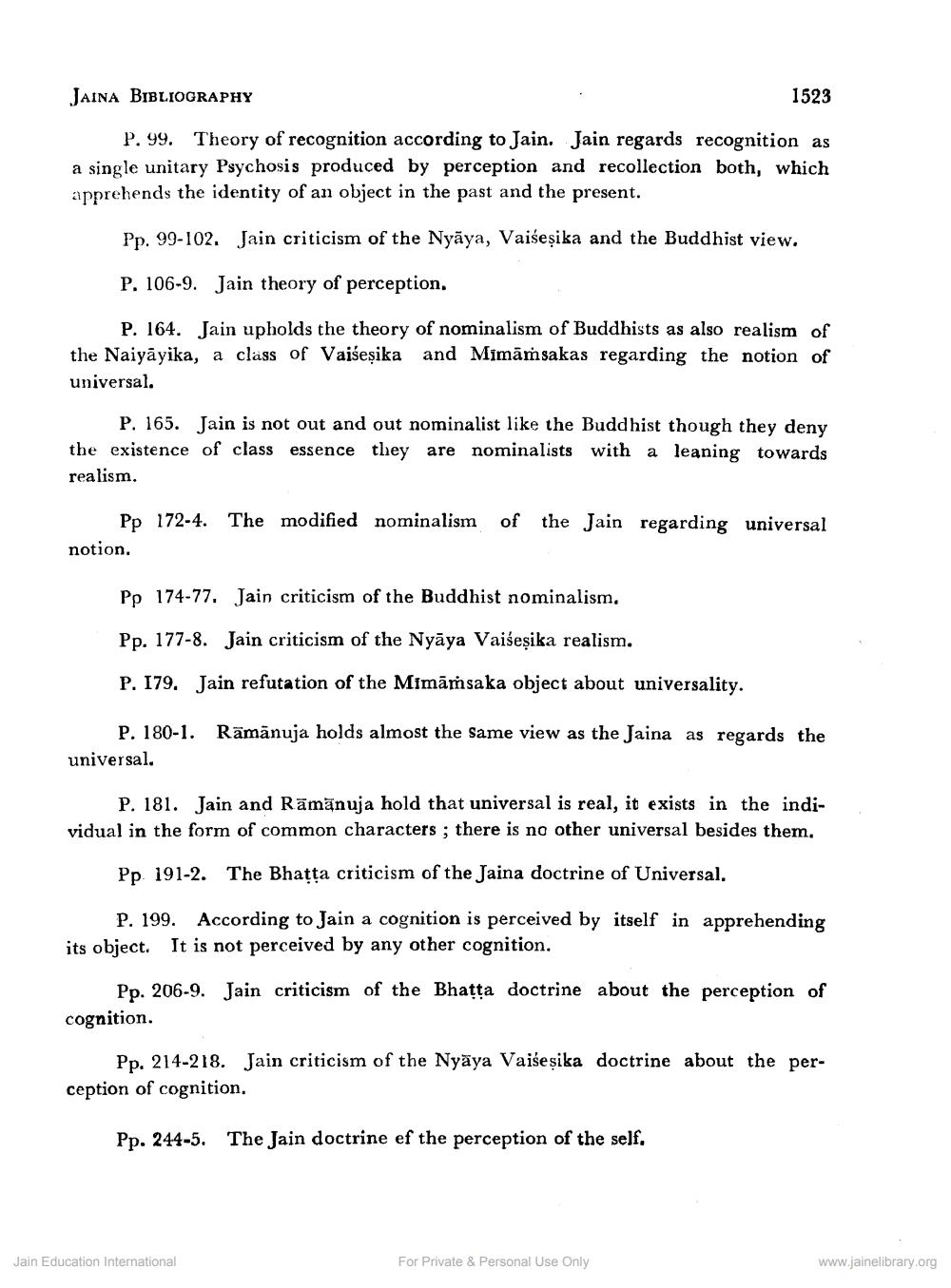________________
JAINA BIBLIOGRAPHY
1523
P. 99. Theory of recognition according to Jain. Jain regards recognition as a single unitary Psychosis produced by perception and recollection both, which apprehends the identity of an object in the past and the present.
Pp. 99-102. Jain criticism of the Nyāya, Vaišeșika and the Buddhist view.
P, 106-9. Jain theory of perception.
P. 164. Jain upholds the theory of nominalism of Buddhists as also realism of the Naiyāyika, a class of Vaišeșika and Mimāmsakas regarding the notion of universal.
P. 165. Jain is not out and out nominalist like the Buddhist though they deny the existence of class essence they are nominalists with a leaning towards realism.
Pp 172-4. The modified nominalism notion.
of the Jain regarding universal
Pp 174-77. Jain criticism of the Buddhist nominalism.
Pp. 177-8. Jain criticism of the Nyāya Vaiseșika realism.
P. 179. Jain refutation of the Mimāṁsaka object about universality.
P. 180-1. Ramanuja holds almost the same view as the Jaina as regards the universal,
P. 181. Jain and Rāmānuja hold that universal is real, it exists in the individual in the form of common characters; there is no other universal besides them.
Pp. 191-2.
The Bhatta criticism of the Jaina doctrine of Universal.
P. 199. According to Jain a cognition is perceived by itself in apprehending its object. It is not perceived by any other cognition.
Pp. 206-9. Jain criticism of the Bhatta doctrine about the perception of cognition.
Pp. 214-218. Jain criticism of the Nyāya Vaišeșika doctrine about the perception of cognition.
Pp. 244-5.
The Jain doctrine ef the perception of the self,
Jain Education International
For Private & Personal Use Only
www.jainelibrary.org




